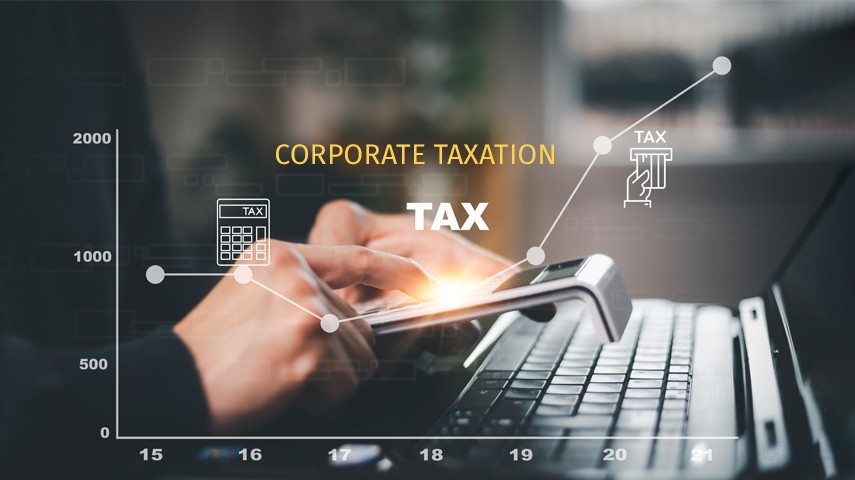Digital Transformation - The Introduction
Welcome to the QBS Digital Transformation Newsletter Series! In this series, we'll guide you through the various aspects of digital transformation and help you unlock the full potential of your business.
QBS offers comprehensive tax solutions, including income tax planning, corporate taxation, international taxation, transfer pricing, GST consultancy, and tax dispute resolution, ensuring compliance and strategic tax management for individuals and businesses.
Our advisory expertise covers business strategy, mergers and acquisitions, financial advisory, risk management, corporate restructuring, and governance, guiding businesses through complex challenges and growth opportunities.
QBS provides a full range of accounting services including bookkeeping, financial reporting, management accounting, account reconciliation, and management of accounts payable and receivable, ensuring accurate financial management.
We offer extensive compliance services encompassing regulatory, tax, company secretarial, and labor law compliance, aiding businesses in navigating the complex regulatory landscape and ensuring adherence to laws.
QBS assists startups with business structuring, incorporation services, regulatory compliance, funding assistance, tax planning, and accounting, supporting startups from inception to growth.
We specialize in incorporating various entities like private and public limited companies, one-person companies, and LLPs, providing tailored solutions for business formation.
QBS handles essential business registrations, including GST, IEC, Shops and Establishments Act, Professional Tax, ESI, PF, LWF, FSSAI, and IP, ensuring legal compliance and operational readiness.
We offer outsourcing services in finance and accounting, human resources, compliance management, and IT services, enabling businesses to focus on their core activities.
Our valuation services include business valuation, asset valuation, share valuation, M&A valuation, and ESOP valuation, providing accurate assessments for informed decision-making.
QBS provides comprehensive services for ESOPs and SARs, including plan design, implementation, administration, valuation, compliance, and optimization.
We offer specialized advisory and compliance services for NPOs, including registration, compliance with regulatory requirements, tax exemptions, governance, financial management, fundraising, and capacity building.
Our payroll services include payroll setup, processing, statutory deductions, compliance, reporting, and employee query handling, ensuring efficient payroll management and compliance.


Of Experience in this Industry.
Quatriz Business Solutions offers tailored accounting, taxation, and advisory expertise. Our strategic approach empowers businesses to navigate financial challenges and achieve sustained growth. Committed to excellence, we are your partners in success.
Join forces with Quatriz Business Solutions, where our blend of experience, customization, and innovation creates a unique platform for your business to thrive. We're not just advisors; we're your partners in navigating the path to success.





We assist individuals and businesses in understanding and managing their income tax obligations by p...


Our corporate taxation services include tax planning and compliance for domestic and international c...


We offer comprehensive international taxation services for businesses with cross-border operations....


Our transfer pricing services help multinational companies manage their intercompany transactions an...


Quatriz Business Solutions offers tailored accounting, taxation, and advisory expertise. Our strategic approach empowers businesses to navigate financial challenges and achieve sustained growth. Committed to excellence, we are your partners in success.
Client Satisfaction
Happy Clients

Rely on Quatriz for expert financial guidance tailored to your unique needs, ensuring optimal outcomes and steadfast support. Quatriz Business Solutions offers tailored accounting, taxation, and advisory expertise. Our strategic approach empowers businesses to navigate financial challenges and achieve sustained growth. Committed to excellence, we are your partners in success.
Quatriz Business Solutions specializes in a range of key areas, positioning itself as a leader in financial and business advisory services.


Positive Review

I had to file my IT returns at the last moment unfortunately and was recommended Mr zabeeh from Quatriz.And I have to say I was pleasantly surprised.Him,irfan and his team sorted it all out within 48hrs.Very well mannered,hardworking and patient the whole team is.I would definitely recommend them.

QBS offers very professional accounting and auditing services. CEO Mohammed Zabeeulla and his entire team, especially Farhan have been extremely patient while taking all documents required for making my accounts, do the audit and file the ITRs well in time !

I used to dread filing my returns, found it tedious and cumbersome. For the last 2 years Zabee and team have been doing all the heavy lifting for me. Thank you for ensuring I am not a defaulter and making it all seem so easy! You guys rock!

Superb Support! Thank you for your wondeful help in 12A & 80G approvals our NGO.

Excellent, prompt and courteous service. I am very impressed and encourage others to avail their top notch services.

It was an excellent meeting. Professional advice to the point Service provided in time specified Wish them all the best.
Presenting our latest updates and tailored industry insights brought to you on regular intervals.
Welcome to the QBS Digital Transformation Newsletter Series! In this series, we'll guide you through the various aspects of digital transformation and help you unlock the full potential of your business.
Are you looking for expert advice and insights to help you navigate the complex world of business finance, taxation, compliance, and advisory services? Look no further!
Introducing "The Financial Blueprint: Empowering Your Financial Journey," a comprehensive newsletter series designed to guide you on a transformative journey towards financial success and well-being. Our goal is to provide you with the tools, strategies, and insights needed to cultivate healthy financial habits, make informed decisions, and ultimately, achieve your financial goals.
Expert Solutions at Your Convenience! For dedicated support tailored to your business, simply complete the form below. A Quatriz Business Solutions expert will reach out to discuss your unique needs and objectives. We're here to offer timely, specialized guidance to help your business thrive.

